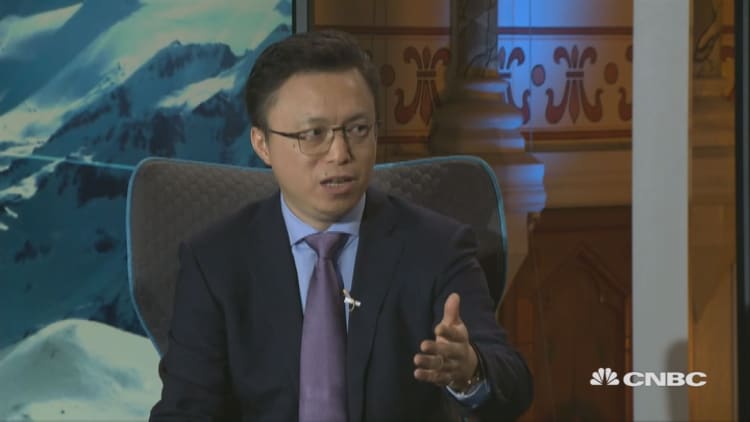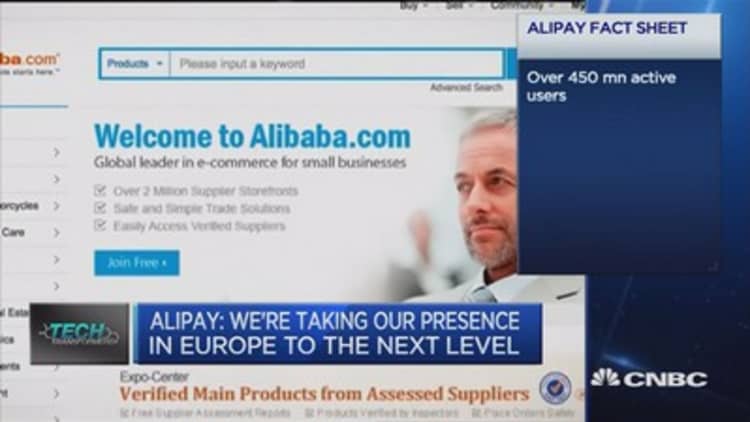The blockbuster listing of Ant Financial, the payments affiliate of Alibaba, has been put on ice until the end of next year at the earliest, according to bankers.
Market players have been counting on Ant, which runs China's popular Alipay mobile payments service, to be the star in this year's initial public offerings calendar. It was valued at $60bn in its last financing round in April 2016, more than twice that ascribed to Snap, the vanishing photo app, after its IPO in March.
More from the Financial Times:
US lawmakers sharpen criticism of MoneyGram deal
Chinese money market fund becomes world's biggest
Singapore's GIC offloads nearly half of its UBS stake
According to one banker, Ant's IPO has been pushed back to late 2018 or the first half of the following year because of the need to secure regulatory approval and to focus on building the business. Ant has been buying up assets overseas, including in India, South Korea and the US, where it is seeking to acquire MoneyGram.
"Ant would like to convert into an [overseas] shareholding, and it needs the blessing of government to do that," the banker said. "And in a year of political uncertainty and manoeuvring, no one is making decisions."

China's Communist party will meet later this year to choose a new slate of top leaders for a once-in-five-years political transition.
In order to list overseas Ant would require a waiver from Beijing, said one mainland-based lawyer. Ant owes its current structure as a Chinese company to a controversial spin-off of Alipay by founder Jack Ma in 2011.
The move, which triggered a public spat with Yahoo, a big Alibaba shareholder, was necessitated by new Chinese government regulations on third-party payment services that meant Alipay had to change its ownership structure, Mr Ma said at the time.
While Ant would likely require a payments licence, or a waiver, if it is to be foreign held, that is a regulatory grey area and a few — much smaller — Chinese payments companies have been able to list overseas regardless.
Lawyers and bankers expect Beijing would grant a waiver, but caution that it could take time. "Once you get over that issue, it doesn't need to be listed domestically and it is a question of which is the right market [Hong Kong or the US]," added another banker, who is looking for a listing in 18 to 24 months.
Ant Financial said it has no IPO timetable or location decision as of now.

In the meantime, Ant is busily stitching up and bedding down deals. Alibaba and Ant in March agreed to invest $177m for a controlling stake in the ecommerce unit of Indian tech group Paytm, having already poured more than $500m into Paytm, which is a similar platform to that run by Ant and which has more than 170m users.
Ant also ploughed $200m into Kakao Pay, a financial services arm of South Korean messaging app Kakao, and last month sweetened its $1.2bn bid for Moneygram to chase off rival suitor Euronet.
Bankers point out that it does not have "a burning need for capital". It recently raised $3bn in debt overseas for foreign acquisitions.
Alipay was the subject of one of China's most controversial corporate governance scandals, when in 2011 Mr Ma took it out of Alibaba and placed it under the direct control of himself and some associates.
Yahoo, at the time a 40 per cent shareholder in Alibaba, was among the main protesters. Mr Ma said he needed to make the step in order to satisfy new Chinese regulations on online finance.
Alibaba later settled with Yahoo and SoftBank, the Japanese technology group that is its other major shareholder. The agreement guarantees Alibaba 37.5 per cent of the total equity value of Alipay or a payment of at least $2bn and up to $6bn, if the spun-off company goes public or another "liquidity event" takes place.
It also requires Alipay to pay Alibaba royalties for software services and 49.9 per cent of its consolidated pre-tax income, and it must continue to service Taobao, the group's consumer ecommerce unit and other group businesses, under preferential terms.
In addition to running Alipay, Ant offers a range of financial services. Its Yu'e Bao money market fund is the world's biggest, with $165.6bn under management, based on first-quarter data.

